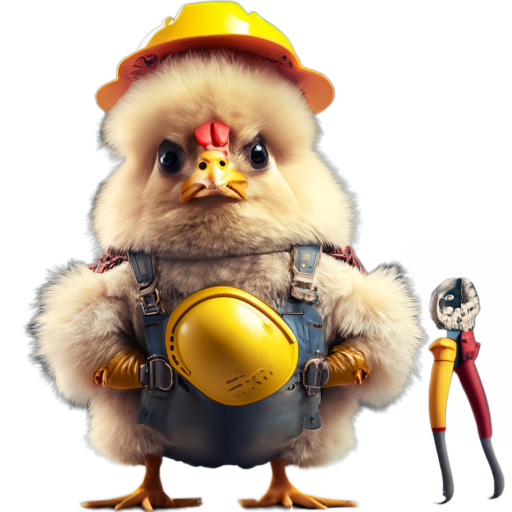Mastering Jobsite Safety: Protecting Yourself and Your Team
In the electrical trade, safety isn’t just a guideline; it’s a requirement. Every day, electricians are exposed to potential hazards, from live wires to heavy equipment. Ensuring that both you and your team are safe on the job site should always be a priority. This article provides essential tips for mastering jobsite safety, minimizing risks, and creating a culture of safety in your workplace.
1. Personal Protective Equipment (PPE)
Personal protective equipment (PPE) is your first line of defense against jobsite hazards. Some of the most important PPE for electricians includes:
- Hard Hats: Protect your head from falling debris and electrical hazards.
- Gloves: Insulated rubber gloves are essential for handling live wires and preventing electric shocks. Always ensure they are rated for the voltage you’ll be working with.
- Safety Glasses: Protect your eyes from flying debris, sparks, and electrical arcs.
- Steel-Toe Boots: These boots provide protection from heavy materials and tools, reducing the risk of injury from falling objects or equipment.
- Hearing Protection: Use earplugs or earmuffs when working with noisy equipment like drills, saws, or generators.
2. Proper Equipment Handling
Handling electrical tools and equipment safely is critical to jobsite safety. Here are some best practices:
- Inspect Tools Before Use: Always check that tools are in good working condition before using them. Damaged tools can malfunction and cause injuries.
- Use Tools Correctly: Follow the manufacturer’s guidelines for each tool, ensuring it’s the right one for the task at hand. For example, using a non-insulated tool on a live circuit can lead to accidents.
- Keep Work Areas Clean: Cluttered workspaces can cause slips, trips, and falls. Organize tools and materials to ensure they are easily accessible and out of the way of potential hazards.
3. Electrical Safety
Working with electricity presents unique dangers. Follow these precautions to reduce the risk of electrical accidents:
- Lockout/Tagout Procedures: Always de-energize circuits and use lockout/tagout procedures when working on equipment. This ensures that no one can accidentally power up equipment while you’re working on it.
- Know Your Circuits: Be familiar with the layout of electrical systems before you start working. Use voltage testers to confirm circuits are not live before handling wires.
- Ground Fault Circuit Interrupters (GFCIs): Use GFCIs to prevent electrical shock, especially when working in damp or wet conditions.
4. Team Safety: Communication and Training
Effective communication and teamwork are key to maintaining a safe job site. Here’s how to improve team safety:
- Pre-Job Safety Meetings: Hold regular safety briefings before starting any job. Discuss potential hazards, proper tool use, and emergency procedures.
- Safety Signage and Barriers: Ensure that safety signs and barriers are in place to warn team members of hazards like exposed wires or moving equipment.
- Training and Certification: Ensure all team members are properly trained in electrical safety and have the necessary certifications. Ongoing education helps to keep everyone aware of the latest safety standards and procedures.
- Buddy System: Use a buddy system to ensure that workers are never alone when performing potentially dangerous tasks. Having a second person nearby can help prevent accidents and assist in emergency situations.
5. Ergonomics and Physical Health
While electrical work is often associated with handling wires and equipment, it also involves significant physical labor. Protect your body from strain with these practices:
- Lift with Proper Technique: Use your legs, not your back, when lifting heavy objects. This reduces the risk of back injury.
- Take Regular Breaks: Long hours on your feet can lead to fatigue. Take frequent breaks to rest, hydrate, and stretch.
- Stay Fit: Maintaining good physical health helps you perform your job more efficiently and reduces the likelihood of injuries. Exercise regularly to strengthen muscles and improve flexibility.
6. Emergency Preparedness
No matter how cautious you are, accidents can still happen. Being prepared for emergencies is an essential part of jobsite safety:
- First Aid Training: Ensure that all team members are trained in basic first aid, including how to handle electrical burns or shock. Keep a fully stocked first aid kit on site.
- Fire Safety: Electrical work can lead to sparks or even fires. Have a fire extinguisher readily available, and ensure that all employees know how to use it properly.
- Know Emergency Contacts: Be familiar with the nearest hospital or medical facility, and have emergency contact numbers on hand in case of a serious injury.
Conclusion
Mastering jobsite safety is essential for protecting both yourself and your team. By wearing the right PPE, using tools correctly, adhering to electrical safety practices, fostering good communication, and maintaining physical health, you can create a safer work environment for everyone. Remember, safety is a continuous process, and the more effort you put into practicing safety on the job, the more you’ll ensure a successful, injury-free career in the electrical trade.

